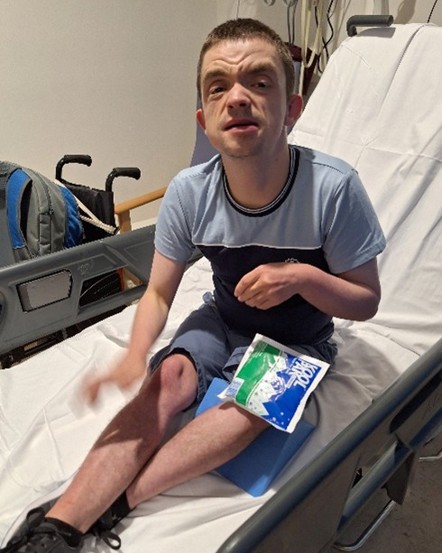How to be friends with a parent or carer of a disabled child

Sharon F
I'm Sharon, I have a daughter with epilepsy and a severe learning disability. I blog about our livewire life.

A close friend told me the other day that I should tell anyone that wanted to be friends with me in the future to watch the incredible BBC sitcom There She Goes before they could be friends with me (still available on iPlayer, highly recommend). I loved this. That drama is like watching our life on screen (minus the seizures).
Do Listen
While I don’t expect my friends to be able to recite all of my child’s medications, remember the names of her doctors and gain a deep understanding of the direct payments system for respite, I love it when they let me offload. If they remember little details when I bring it up again, it really helps me feel supported and heard.
Don’t downplay your own stuff.
Don’t downplay your own stuff. At some point I think all of my friends have found themselves finishing off a download or a moan about their life stuff with the words ‘but it’s nothing compared to what you’re going through, of course’. There’s no need to say this. In fact, I now actively ask people not to. I want to hear the stuff that’s going wrong in their life, it helps me remember that everyone has difficult things to deal with.
Don’t turn up at my house unannounced.
Thishas only happened on a few occasions but each time it’s unnerved me.We have so much uncertainty in our lives that a sudden doorbell ring with the expectation of a quick cup of tea is generally enough to send me into a tailspin. When the children are at school I cherish the quiet and am either working, doing the admin that comes with having a disabled child or trying to get some desperately needed rest.
Do give me loads of leeway.
My friends are brilliant at understanding when I don’t get back to them. There’s no pressure.Same applies when I have to bail on stuff, or say a flat out no.I can’t do late nights (that means past 9pm) and no longer drink alcohol or caffeine. All my friends understand this and know what I do and don’t do. I am in bed by 9 every night.
Don’t feel pressure to ‘help’
Naturally, when I started on this journey, my friends wanted to help, somehow. In the early days, or at times when we are in hospital, things like cooked meals and practical help were what we needed. As time has gone on however, my close friends have been able to tune in more to the nuances of the situation and by far the most helpful thing for me now is having them listen, understand and sometimes help with practical advice (such as reading over an email) and helpful reminders about how I have coped in the past, so I know I can cope again.
If I have one message based on my experience it would be this: Just listen, and be there. That’s it. It’s hard to see friends struggle, but part of the skill in being a friend is being able to sit with the other person in the hard times and bear it along with them, especially when you can’t make it better.


